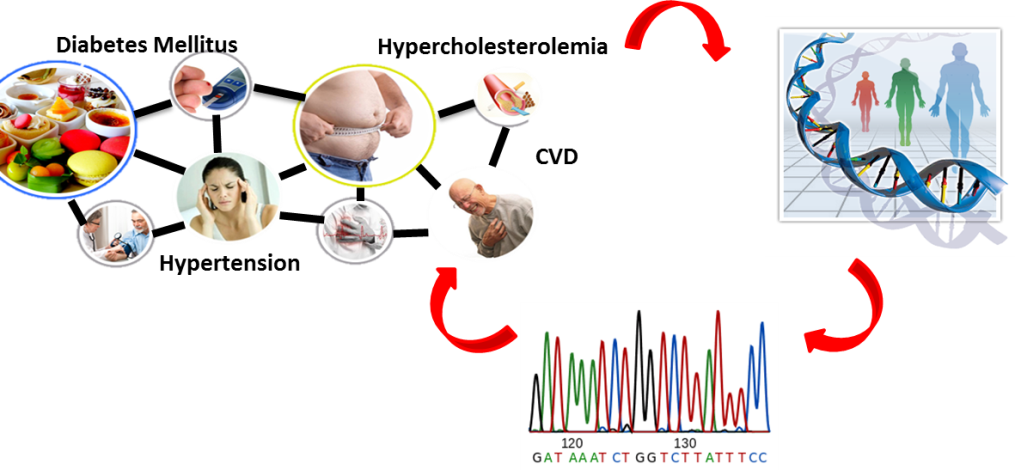
Walailak Frontier 08, December 2018
New genetic markers for predicting cardiovascular disease in Thai population
Cardiovascular disease (CVD) is the leading cause of death in the world. In 2015, the World Health Organization (WHO) reported that 17.7 million people died due to CVD, representing 31% of all global deaths. The mortality rate of CVD will approach 23.6 million deaths by the year 2030. There are several cardiovascular risk factors, including dyslipidemia, hypertension, insulin resistance, glucose intolerance, abdominal obesity, and metabolic syndrome (MetS). The most potent factors are dyslipidemia and MetS; these result from environmental factors (e.g., smoking, lack of exercise, psychological stress, diet, and alcohol consumption), as well as genetic factors (e.g., LDLR, apoB, PCSK9, CETP, apoE, MTHFR, PON, VDR, and eNOS).

Recent studies among Southern Thai subjects have demonstrated that CETP TaqIB, ApoE, and VDR polymorphisms may not be considered as genetic risk factors for MetS in the Southern Thai population. However, the apoE4 allele which is associated with one metabolic component, low HDL-C levels, and the VDR BsmI variant, which is associated with hypertriglyceridemia, might predispose subjects to the development of metabolic disturbances. In addition, VDR TaqI and BsmI polymorphisms seems to influence serum 25(OH)D levels in MetS subjects, while VDR Cdx2 polymorphism may influence WC in all subjects. Furthermore, the PCSK9 670G urban female carriers showed significantly higher TC and LDL-C levels compared with non-carriers. APOE4 carriers had increased TC and LDL-C levels relative to APOE3 carriers in urban males. A trend of significantly increased TC and LDL-C levels was observed in non-APOE4-PCSK9 670EE carriers to APOE4-PCSK9 670EG carriers in urban subjects. This suggests that APOE, VDR, and PCSK9 polymorphisms could be used as the genetic markers for predicting dyslipidemia and metabolic disturbance in order to prevent CVD in Thai subjects.
Sources:
Sangkaew B, Nuinoon M, Jeenduang N. Association of vitamin D receptor gene polymorphisms with serum 25(OH)D levels and metabolic syndrome in Thai population. Gene. 2018; 659: 59-66
Jeenduang N, Porntadavity S, Wanmasae S. Combined PCSK9 and APOE polymorphisms are genetic risk factors associated with elevated plasma lipid levels in a Thai population. Lipids 2015; 50(6): 543-53
Jeenduang N, Porntadavity S, Nuinoon M, Horpet D, Thepkwan N, Thaworn P, Theanmontri S. Studies of the CETP TaqIB and ApoE Polymorphisms in Southern Thai Subjects with the Metabolic Syndrome. Biochem Genet 2015; 53(7-8): 184-99
Facebook: wufrontovation
Related Link:
